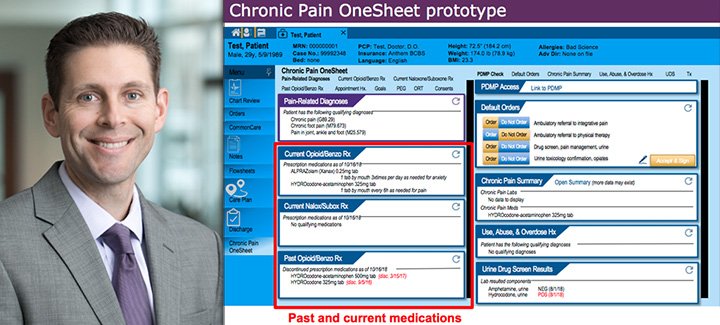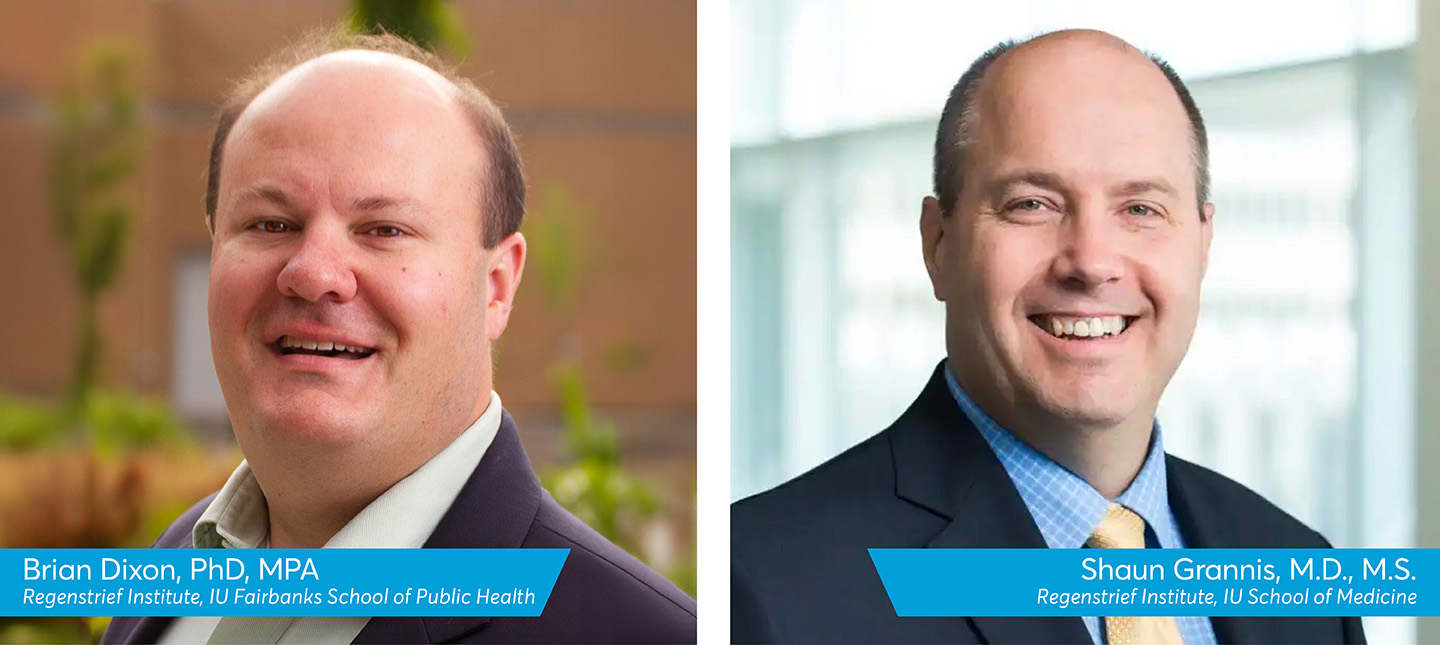Chris Harle, PhD, from Regenstrief Institute and Indiana University Richard M. Fairbanks School of Public Health, gave a keynote speech at the Patient-Centered Clinical Decision Support Learning Network’s annual conference about how to provide clinical decision support over the long term in the face of the opioid epidemic.
Dr. Harle presented his work on the primary care challenge of treating chronic pain while keeping patients and the public safe from opioid-related risks. He shared the idea of a “Chronic Pain OneSheet,” where all information needed for CDS could be found in one place. He said the goal is to make CDS easy, relevant and convenient for clinicians and patients.
The research Dr. Harle presented involved collaboration with clinical and information technology organizations of multiple health systems. It was funded by Pfizer, the National Institutes of Health (NIH), and the Agency for Healthcare Research and Quality (AHRQ).
The Patient-Centered Clinical Decision Support Learning Network is a new AHRQ-supported effort to promote development of patient-centered CDS.










